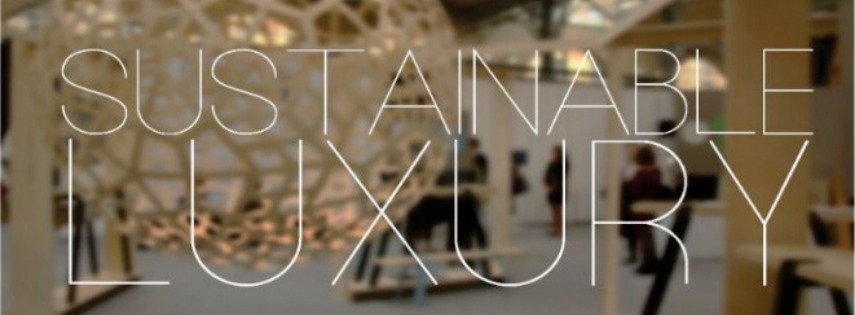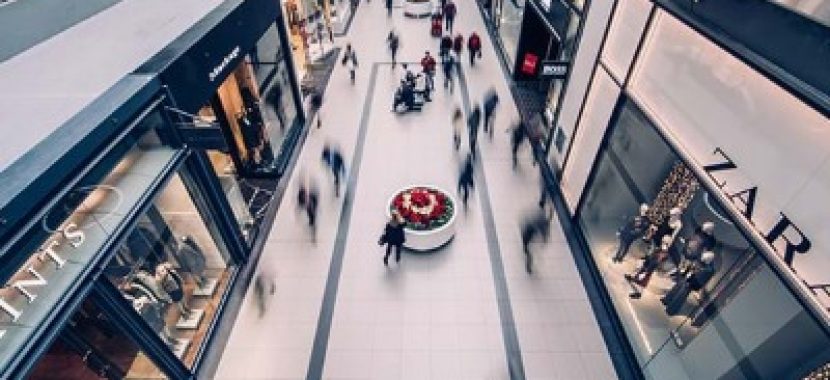
Sustainable Luxury Marketing – An Imperative Approach
Authors
Mr. Abhay Gupta
CEO & Founder
Luxury Connect & Luxury Connect Business School, Gurgaon
Dr Tanushri Pur0hit(lNAAR Membership No. INAAR/1598) Academic Director
Luxury Connect & Luxury Connect Business School, Gurgaon
Abstract
It has become imperative for the Luxury Industry to build in its genes and business model that it is no more a self-centered entity but a sustainable leader sustainable in social, economic and ecological terms redefining the perception of quality and luxury dreams. Luxury brands endeavor to sell in aspiration and passion. They are usually the highest-priced and highest-quality terms in any product or service vertical and provide the consumer with an privileged experience or sense of status.
This paper focuses on how by adopting sustainable strategies Luxury Industry is aligning its providers and distributors to accelerate process and behavioral changes and parallel rapidly with sustainable values. Also how consumers demand for sustainable products and services are increasing Luxury brands attention towards sustainability . This will transform their image into individuals who by their prudent choice of Luxury brands will express not only their taste and affluence but also sense of philanthropy and environmental concern.
Key words: sustainability, luxury industry, environment concern ,luxury consumer
Introduction
Companies chose prudence focusing in implementing rather than appearing to be . From managerial perspective, environment safeguard has acquired increasing significance, with the growing awareness of all stakeholders involved (consumers, investors, employees, journalists, etc.) (Capriotti and Moreno 2007: 84). Delaring their sustainable policies and practices by the luxury organizations has become imperative to all its stake holders. But the doubt always raised whether a luxury brand will really emerge as a honest and accountable in the eyes of the stakeholder when declaring their sustainability concerns.. The implications and associations of these brands is usually seem far removed from sustainable practices. The public opinion usually has a contracted visualization of luxury and diminishes it to ts negative facets such as conspicuous consumption, artificiality, inequality or excessiveness (Seulliet 2003). In fact, ‘sustainable luxury’ is commonly thought to be an oxymoron. Nevertheless, it seems that it is on a crossroad between two speres. As aénard (quoted in Entretien du Cercle Beaumarchais 2005: 2) points out, a fair number of the concerns of sustainable development are actually inherent to the luxury sector. Seulliet (2003) also argues that there is an overlap between the values of luxury brands and those of sustainable development. Indeed, “the luxury industry advances the idea of an objects durability. A luxury product is meant to last” (Comité Colbert 2008: 27). In addition, luxury is by definition symbol of excellence, expertise, preciousness, perfection, proficiency, creation and novelty. These ideologies actually progresses towards protection of planet and sustainability.
The expansion of luxury industry in economies with rising middle classes, with Asian countries has been at an accelerated pace. Despite the acceleration, there are cautionary signs of an impending impasse. The straight ecological effects of luxury brands are noteworthy less in comparison to other verticals like FMCG,oil and neural gas which have shorter lifecycle. But luxury brands are more susceptible to reputational damage, since their equity is based on trust and compassion.
Luxury brands across the world can influence consumer behaviour through innovativeness and exemplary settings. Sustainable product designs can trim down the straight impact of production and develop performance efficiencies; and consumer awareness and education in the area of sustainable luxury products and services through their communication strategies. Products that cause misery to mankind or ecological deterioration, today and tomorrow, are not considered luxurious by today’s socially and environmentally conscious consumer.
Significant holistic development can be achieved by providing benefits to the people, communities and environment affected by production, marketing and distribution of luxury products. This would require considerable process enhancements and innovative designs across all functional verticals and also effective implementation of these sustainable polices by the organization. Such sustainable practices when effectively communicated to the stakeholders and the world rit automatically enhances the intangible brand value of the luxury organization.
Luxury goods and services engage varied supply chains that touch upon communities and environment across the world. With growing awareness all stakeholders, including investor, increasingly look forward to provable and comparable information on social and ecological reporting, implemented by the luxury organization in meeting their sustainability goals.
Research Methodology
This paper is based on exploratory search on accessible data from varied sources, together with intergovernmental entities, governments, academics, and corporate have been evaluated , appraised and arranged contextually to put in a navel way towards sustainability concerns in the Luxury sector.
Sustainable Marketing Strategies-A look at Success stories of Luxury Brands
The luxury industry is based on novelty, creativeness and distinction. Its aspires to provide the best products and services to the today’s environmentally and socially aware consumers who is not only focused on luxury consumption but also on ecological and holistic restoration of the planet. Resources are becoming scare day by day and poverty is increasing with the ever increasing demand. Consumers today do not consider those products best which crafted aesthetically but produced in a way which is not detrimental to the planet and society at large
To symbolize present-day luxury, the finest products need to be socially and environmentally responsible. It is unfeasible to account for today’s luxury without amalgamating the belief of sustainability in the value chain.
This section of the paper discusses few case examples from the luxury industry which are serving the demanding marketplace while concurrently protecting natural resources, preserving human rights and honoring fair trade practices.
Louis Vuitton is paving the way for luxury brands to integrate environmental issues at the heart of their business strategy as well as implement a green communication. Concerning the other luxury brands, the general lack of relevant environmental communication – in spite of a few hints to internal environmental policies generally limited to issues of recycling – leaves room for improvement. Luxury brands base their business on image and are notoriously shy at adopting dramatic changes that they view as a potential threat to their sales. However the strength of the current trends in public opinion leaves them with no other alternative but to combine the ‘green’ and the ‘gold’ in the future.
Another success story of family brands Loro Piana and Ermenegildo Zegna in the Peruvian Andes, working with the vicuria, became a model for inspiration. Their work was the first proof that a threefold benefit—for the planet, for society and for businesses—was possible. 30th companies worked with the local Andean communities. These communities were not only given training in breeding and shearing vicuäas, but also provided with and guaranteed purchase agreements for the wool over the long term. One of the results was that vicuöa numbers recovered after the species had previously been on the verge of extinction. This was the first example of active intervention by commercial brands allowing biodiversity to be recovered. Another positive result of this programme was the economic development of the area. Many of the families who lived there previously had no alternative but to take the harsh decision to migrate to cities. The chance of leading a decent life in their home town or village has allowed them to stay on there, work and even prosper.
Luxury brand Fendi is part of LVMH group, who are taking various steps to protect people and the planet. Measures have been put in place to minimise water and energy usage and the emission of greenhouse gases. The quality of the natural, agricultural and urban landscapes is a priority for LVMH group and all Group sites are carefully designed to seamlessly blend into their environment. LVMH group also implements every resource to facilitate the recovery of ts wastes. The employees in all Group companies have received special training, and each work station on their production sites is equipped with selective sorting containers.
ABURY Collection brings together exciting, emerging designers with traditional artisans from remote and inspiring cultures. This exchange of knowledge between the old world and the cutting edge allows for a new context to emerge, leasing crafts a new life and lending design an emotional component which has been missing in recent times. The designer is embedded in a craft culture for roughly three months to learn and share ideas from one another and to create a collection together, bringing the best of heritage knowledge and wisdom to high design and sustainable solutions.
But the ABURY cycle goes beyond this two way relationship, caring for the whole supply chain; from supporting the village communities by bringing not only work opportunities and helping to preserve their traditions, but also by giving back the same number of production hours in education hours for every product sold. This way we can also involve our final consumer, not only by bringing them closer to these communities every time we share details of our journey and the lives of our artisans, but also by giving our consumers the possibility of leaving a positive impact every time they buy one of their products.
Located at the foot of the legendary Chyulu Hills, Hemingway’s “Green Hills of Africa,” Campiya Kanzi is a partnership with the Maasai community of Kuku Group Ranch, promoting environmental conservation and sustainable community development through ecotourism.
Campi ya Kenzi was built using only sustainable materials collected locally, employs locally (90% are local Maasai), pays tourism revenues to the community and supports a community trust. The camp fulfills all water needs through rain cropping and storing it in PVC bladders and only uses renewable energies; photovoltaic panels for electricity and solar boilers for hot water. It was also the first lodge in the 90’s to use IJNEP approved eco-friendly charcoal to cook all the food.
Campi ya Kenzi has been awarded the Five-Leaf Certification for excellence in environmental sustainability by Five-Leaf System and has been recognized for its sustainability efforts as a Global Ecosphere Retreat for its commitment to conservation, community, culture and commerce. The camp is also in partnership with Pack for a Purpose, an organization that partners with tourist destinations to allow guests to bring supplies desperately needed by the local communities. Campi ya Kanzi has been built for and by the Maasai community with the mindset that the ultimate protection of the environment requires the consideration of wilderness, wildlife and culture, and puts this into practice throughout every aspect of the camp.
Puma SE officially branded as PUMA, is a major German multinational company that produces athletic shoes, footwear, and other sportswear. The company was formed in 1924 as Gebruder Dassler Schuhfabrik by Adolf and Rudolf Dassler. The relationship between the two brothers deteriorated until the two agreed to split in 1948, forming two separate entities, Adidas and Puma – both companies are currently based in Herzogenaurach, Germany.
Puma is committed to working in ways that contribute to the world by supporting creativity, sustainability and peace and by staying true to the values of being fair, honest, positive and creative in decisions made and actions taken. The foundations of Puma’s activities is PUMA. Vision – a concept that they use to guide their work using three core programs PUMA Creative, PUMA. Safe and PUMA. Peace.
PUMA. Safe comprises initiatives and commitment to environmental protection and improved working conditions that have been in place for many years. These are complemented by new programs which focus on implementing cleaner, safer and more sustainable systems and processes within the supply chain. PUMA Peace supports the global Day of Ceasefire on the 21st September every year though its initiative ‘One day One goal’ which aims at getting people to play football with the idea that the power of sports will unite people in peace.
PUMA Creative celebrates creativity as the core competence of the brand aiming to bring together artists and different organizations for a mutual creative exchange and offering them an international platform.
Dominique Mandonnaud founded French brand, Sephora, in 1970. A visionary beauty retail concept, Sephora features an ever-increasing amount of classic and emerging brands across a broad range of product categories including skincare, colour, fragrance, body and hair care, in addition to their own private label.
In order to best serve their customers, Sephora developed “Science of Sephora”, which ensures that their team is skilled to identify skin types, has knowledge of skin physiology, the history of make-up, application techniques, the science of creating fragrances, and most importantly, how to interact with Sephara’s diverse clientele.
Owned by Louis Vuitton Moet Hennessy (LVMH), the world’s leading luxury goods group, Sephora is highly regarded as a beauty trailblazer, thanks to ts exceptional assortment of prestige products, unbiased service from experts, interactive open-sell environment and innovation.
Today, Sephora is not only the leading chain of perfume and cosmetics stores in France, but also a powerful beauty presence around the world, with approximately 1 ,300 stores in 27 countries worldwide, as well as 15 international websites, seven of which are online stores.
Sephara is more than just a beauty chain, supporting a number of charitable causes, including women’s health, child education, environmental awareness and world hunger. Examples of organizations they have worked with in the past include, Girls For a Change and Starlight Children’s Foundation. Currently, purchasing Philosophys Why Hunger To Believe Charity Shampoo, Shower Gel & Bubble 38th and Buxom’s Stay-There Eye shadow will support Why Hunger and Canine Companions for Independence respectively.
Mulberry endeavors to make a difference to the people, environment and communities it works with in a number of ways.
Sustainability and Packaging: Mulberry are in the process of implementing a new concept that will reduce packaging production, cardboard waste, transportation of stock and carbon footprint.
Charity and Community: Mulberry has an active programme of donating money, product and support to charities, schools and colleges in their local community and industry. The charities they support are those assisting education, design, craft, music and welfare of people and animals. They also often make one off donations to disaster relief efforts and development charities. They also have a well-established apprenticeship programme training young people in Leather Goads Manufacture to give skills to a new generation of artisans. Fair Partners: Mulberry will only work with partners who have signed their Global Sourcing Principles and Animal Sourcing Principles, and they endeavour to use fair trade alternatives whenever suitable or available.
Animal Welfare: All leather is sourced ethically and only from partners that adhere to strict sourcing guidelines and must be CITES certified.
Developed and founded by skin expert Antonia Burrell, her eponymous brand is committed to using the natural properties of specifically selected natural and organic (where possible) ingredients in her collections. With years of experience in research, teaching and working at Covent Garden’s spa and The Sanctuary, Antonia is trusted in the health and beauty world – she is a member of BABTAC (British Association for Beauty Therapy & Cosmetology).The company is a firm supporter of sustainability, ecological and ethical practices. All of Antonia aurrell’s products are 100% naturally derived from plants and herbs and are primarily grown within the UK – with the exception of some ingredients. Where possible, these plants are grown organically and meticulously blended to produce some of the best, natural and beneficial formulations for your skin.
All of their products are stored and sold within their recyclable pots, made from violet glass. This specific use of glass has been proven to preserve the biological benefits of the ingredients within each product. With supporting UK and other organic farms across the globe to grow their plants and herbs, they provide support for companies that carry a similar ethos. In regards to UK farms, it reduces transit carbon emissions and costs, meaning less environmental impact and cost to the consumer.
As luxury providers become more environmentally conscious, they are able to appeal to their consumer’s newfound global awareness without compromising the luxury experience.
Managerial Implications
Sustainability or the need to ensure handing over a healthier planet to the future generations is a burning need that cannot be ignored any further.
First emerged as a growing phenomenon of few examples as below :
- The ozone layer depletion due to excessive use of every day air conditioners and other ‘Luxury appliances.
- ‘Wooden furniture’ leading to deforestation of massive natural green growth.
- Craze for exotic animal skin products leading to extinction of rare species of animals example ‘fur’ jackets ; python bags etc.
- Plastic waste choking rivers and mountains
- Depletion of natural energy products like fuel and gases.
- Air pollution due high carbon emission exhausts.
- Excessive pesticide use leading to contaminated food stuff.
It is not difficult for a normal human being to relate to any of the above happening around us. Burning questions of how businesses can contribute to a more cleaner, healthier and sustainable future is a subject which is being taught to future managers in leading 3 Schools. Associations, groups and forums have sprung up all over the world. Symposiums are being conducted as ‘World Sustainability Seminars’ by leading developed nations in Europe and LISA alike.
Clearly, the world is at a cross roads of ‘development’ and ‘sustainable development’ – how does one balance between the two is a new area of managerial skill sets. Implications of wrong decisions could lead a company and its brand to a never to recover position. Real life recent examples of established brands like Hermes and the famous birkin bag should be a warning to all managers in the corporate world.
Luxury mangers should be concerned about their company’s social and environmental performance for two reasons: first, because the challenge of global sustainability is apparent and imperative; second because enhances their overall brand value.
As luxury products and services progresses from initiation through design and manufacturing, managerial focus should constantly query its sustainability at each step and at all stages of ts lifecycle. Thinking of innovative ways for the existing products or services which can be enhancing people’s insight of themselves as more environmentally or socially responsible.
CSR should collaborate with the other core business verticals (including product development, sales and marketing) to build up key performance indicators (KPls) of sustainable business performance. Organizational focus should be on embedding social responsibility and innovation into corporate and brand DNA.
Concluding Remarks
While profitability’ is the ethos of any business house, ‘sustainable profit is the new future. A short term business gain versus a long term sustainable gain is the necessity of the hour. A business plan which ignores how / what the business is going to give back to nature, society and social development much beyond the prescribed ‘Corporate Social Responsibility is to be factored in at early stages of the plan. The world, its consumers and society in general is no longer tolerant towards a profit generating but natural resources diminishing organization. There has been shifts in the luxury paradigm, emerging from major changes in social dynamics. In future, the highest quality product or service will be the one that generates the most benefit to all involved in its production and trade.
Consumers acquaintance of that benefit will be vital to their elite experience, and to the esteem ascribed to them by their peers. In future, luxury brands could symbolize the utmost positive contribution any product or service that could lead to holistic enhancement of people and planet. The world would recognize the luxury consumer as a person who has concern for the mankind as well as our planet earth. This deeper, more genuine progression to luxury would necessitate truly brilliant social and environmental performance; consumers expect excellence in this, because they expect it in all aspects of a luxury brand.
References
Capriotti, P., & Moreno, A. (2007). Corporate citizenship and public relations: The importance and interactivity of social responsibility issues on corporate websites. Public Relations Review, 33, 84-91.
CAPRIOTTI Paul and MORENO Angeles, 2007. “Corporate citizenship and public relations. The importance and interactivity of social responsibility issues on corporate websites”, in Public Relations
Review, 33, p. 84-91.
COMITÉ COLBERT. “Luxury: A Growth Driver for 21st -century Europe”. In Comite Colbert, [Online). December 2008.
ENTRETIEN DIJ CERCLE BEAUMARCHAIS. “Luxe, nature et developpement durable”. June 2005. By BEAUJOLAIS Elise. Memoire – etudiante – luxe et developpement durable.
Luxury Online. Styles, Systems, Strategies, Basingstoke / New York, Palgrave Macmillan. SICARD Marie-Claude, 2006.
Luxe, mensonges & marketing. Mais que font les marques de luxe ?, 2nd edition, Paris, Village Mondial. SEIJLLIET Eric. “Le luxe sera ethique ou ne sera pas” Marketing Magazine [Online). N’80 (September 2003).
www.positiveluxury.com/accessed on November 12,2015
www.vvwf.org.uk/deeperluxury/accessed on November 10,201 5
www.grailresearch.com/pdf/Blog/2010-Dec-Grail-Research-Green-The-New-Color-of-Luxury_244.pdf/accessed on November 3,2015







